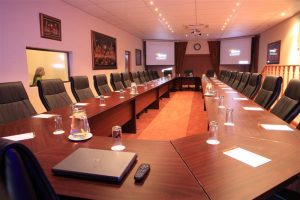
Organizing conferences require tremendous time, planning, people, and effort. Details must be fleshed out, and event organizers must be prepared for the unexpected. For beginners, organizing a conference may seem like a tough hurdle to jump over. To help you and the others, here are the necessary steps to pulling a successful conference.
Step 1: Know what your conference is all about
Any sane event organizer knows that it’s impossible to pull conferences out of the blue. You have to establish what your conference is all about. And that can be done by asking what, when, who, why, and where.
Also, you have to listen to your target audience and look for the demand. For example, among beginner copywriters, there must be a question going on about how to start a career in writing. Focus on that issue as the topic of your conference.
If you think that the topic is too big for you, you may branch out into smaller, manageable topics.
Step 2: Organize your team

It is essential you get reliable and competent people on your team. Search for friends, family, or colleagues who have experience in managing events. If you need more people on your team, you can organize volunteer recruitment by posting an ad online. But, before you find people to help you, you must establish the roles and responsibilities of each person.
A recommended way of doing this is by organizing people in departments. Each department will have a specific role in the event planning process. For example, the logistics department will handle venue reservations while the externals department is in charge of looking for sponsors. Each unit will have a head who will act as the central committee along with you.
Step 3: Plan all the details
From the beginning, it is imperative to know the type of conference you are planning, event programs, requirements and such. You have to dedicate this portion of the process with a lot of time and meetings with your central committee members. Every detail of the event must be finalized; or else, the conference might fail.
Step 4: Find your venues and speakers

Finding the perfect venue depends on the number of participants you are expecting and any other requirements for your event. Your number one consideration will be the audio services and seating arrangements of the venue. If you plan to give free meals, you will have to consider catering services as well.
Further, if you plan to have speakers, it is best to look for them as soon as possible. Looking for the right speaker is very tricky; you have to see if they agree with the speaking structure that you planned for them. Moreover, you have to consider speaker compensations for deciding to show up at your event.
Step 5: Look for sponsors
Having sponsors is not a requirement, but sponsorship funds help a lot in planning conferences. The funds will give you an extra leeway for more expenses and support your conference to break even. However, take note that with sponsors, you have to give something to them in return. Typically, they ask for some time in the conference for advertisements or space to showcase their products.
Step 6: Expect the unexpected
Sometimes, nature will not be on your side. Storms, earthquakes, and special declared holidays may force you to cancel your event. In the event of this, be prepared. Always communicate with your participants about cancellations, possible rescheduling, and refunds (if you ask to pay for attendance).
With these useful and straightforward steps, you will be able to host a successful conference!